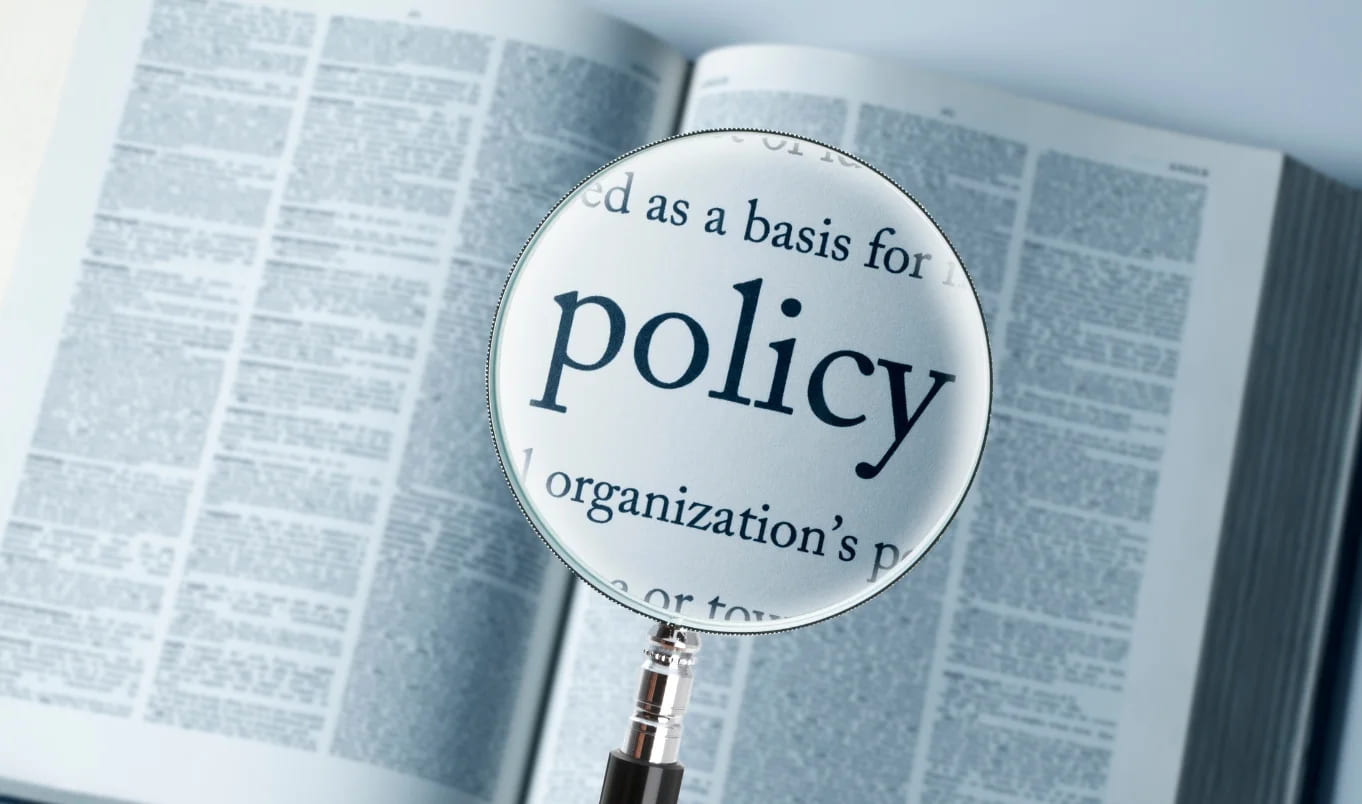How Changes in Immigration Policies Could Affect Your PR Application

Strong 8k brings an ultra-HD IPTV experience to your living room and your pocket.
Immigrating to Canada is a dream for many people worldwide, and Canada's Permanent Residency (PR) offers a pathway to that goal. However, like any other country, Canada's immigration policies are subject to change based on the political, economic, and social landscape. These changes can significantly impact the process and chances of obtaining PR, making it crucial for applicants to stay informed. This article will explore Canadian immigration pathways, simplify current policies, discuss how policy changes might affect PR applications, and provide an overview of the current policies for the Express Entry and Provincial Nominee Program (PNP).
Canadian Immigration Pathways: An Overview
Canada offers several immigration pathways to permanent residency, catering to different needs, skills, and circumstances. The most popular pathways include:
1. Express Entry System:
The Express Entry system is a points-based immigration program designed to manage applications for three economic immigration categories: the Federal Skilled Worker Program (FSWP), the Federal Skilled Trades Program (FSTP), and the Canadian Experience Class (CEC).
Applicants are ranked based on the Comprehensive Ranking System (CRS) score, which considers factors such as age, education, work experience, language proficiency, and adaptability. Those with the highest scores are invited to apply for PR.
2. Provincial Nominee Program (PNP):
The PNP allows Canadian provinces and territories to nominate individuals who wish to immigrate to Canada and settle in a particular province. Each province has its own nomination criteria, often aligned with regional labor market needs.
There are two types of PNP streams: those aligned with Express Entry and those outside of it. Being nominated through a PNP can significantly boost an applicant's CRS score, improving their chances of receiving an Invitation to Apply (ITA) for PR.
3. Family Sponsorship:
Canadian citizens and permanent residents can sponsor family members, including spouses, partners, children, parents, and grandparents, to immigrate to Canada. This pathway emphasizes reuniting families in Canada and does not rely on points or work experience.
4. Business Immigration Programs:
These programs target entrepreneurs, investors, and self-employed individuals who can contribute to the Canadian economy. Options include the Start-Up Visa Program, Self-Employed Persons Program, and various provincial entrepreneur streams under the PNP.
5. Humanitarian and Refugee Programs:
Canada also has a strong commitment to humanitarian efforts, offering protection to refugees and individuals in need through its refugee resettlement programs and other humanitarian pathways.
Understanding Immigration Policies in Simple Terms
Immigration policies are the rules and regulations set by the government to manage who can enter the country, who can stay, and who can become a permanent resident or citizen. These policies are influenced by various factors, including economic conditions, labor market needs, political priorities, and social considerations.
In Canada, immigration policies are developed and enforced by Immigration, Refugees, and Citizenship Canada (IRCC). The policies cover a wide range of aspects, including eligibility criteria, application procedures, and the rights and responsibilities of immigrants.
How Changes in Immigration Policies Can Affect PR Applications
Changes in immigration policies can have a significant impact on your PR application in several ways:
1. Eligibility Criteria Adjustments:
Policy changes may alter the eligibility criteria for different immigration pathways. For example, changes in age limits, language proficiency requirements, or the recognition of certain qualifications can affect your eligibility or CRS score.
It’s essential to stay updated on these criteria, as changes could either increase or decrease your chances of qualifying for PR.
2. Points System Modifications:
The Comprehensive Ranking System (CRS) score requirements in the Express Entry system may change based on the number of applicants and the labor market needs. If the minimum CRS score required for an ITA increases, it could make it more challenging for some applicants to receive an invitation.
Conversely, changes that reduce the CRS cut-off score could improve your chances of being selected.
3. Program-Specific Changes:
Provinces may update their PNP streams based on changing economic needs. For instance, a province might prioritize specific industries or occupations due to labor shortages, which could affect the types of candidates they nominate.
Changes in these programs might require applicants to adjust their job offers or work experience to align with new provincial priorities.
4. Processing Times and Quotas:
Immigration policies also influence processing times and quotas for different programs. A shift in policy might lead to faster processing for certain categories or, conversely, slower processing if the government tightens controls or reduces quotas.
Applicants need to be aware of these changes to manage their expectations and plan their applications accordingly.
5. Introduction of New Programs or Pathways:
The Canadian government may introduce new immigration programs or modify existing ones to address emerging needs. Staying informed about these changes can open up additional opportunities or require adjustments to your application strategy.
Current Immigration Policies for Express Entry and PNP Programs
To better understand how policy changes might affect your PR application, it’s helpful to review the current policies for two of the most popular immigration pathways: Express Entry and the Provincial Nominee Program.
1. Express Entry System:
• Federal Skilled Worker Program (FSWP): This program targets skilled workers with foreign work experience who meet the minimum criteria for education, work experience, and language proficiency. The current policy emphasizes higher education and strong language skills, with additional points awarded for job offers and Canadian work experience.
• Federal Skilled Trades Program (FSTP): Designed for skilled tradespeople, this program requires applicants to have a job offer in Canada or a certificate of qualification in a skilled trade issued by a Canadian province or territory. Language requirements are lower than the FSWP, but applicants must demonstrate sufficient work experience in their trade.
• Canadian Experience Class (CEC): This program is for individuals with at least one year of skilled work experience in Canada. It is particularly attractive to international students and temporary workers in Canada, as it values Canadian work experience highly.
The CRS score cut-offs for Express Entry draws fluctuate based on the number of applicants in the pool and the labor market needs. As of the latest updates, the CRS cut-off scores for general draws have been relatively high, reflecting the competitiveness of the program.
2. Provincial Nominee Program (PNP):
• Express Entry-Aligned Streams: Many provinces have streams aligned with the Express Entry system, allowing them to nominate candidates who meet provincial labor market needs. A nomination from a province adds 600 points to the applicant’s CRS score, virtually guaranteeing an ITA.
• Non-Express Entry Streams: Provinces also have independent streams for specific occupations, entrepreneurs, and other targeted groups. These streams are not linked to Express Entry and have their own application processes.
Provincial criteria are often tailored to regional economic needs, meaning that they can change frequently. For instance, some provinces may prioritize healthcare professionals, tech workers, or tradespeople depending on local labor shortages.
How to Stay Informed and Adapt to Policy Changes
Given the potential impact of policy changes on your PR application, staying informed and adaptable is key. Here are some tips:
1. Regularly Check Official Sources:
The IRCC website and official provincial immigration websites are the best sources for the latest updates on immigration policies and program changes. Subscribing to newsletters or following these sources on social media can help you stay up-to-date.
2. Consult with Immigration Experts:
Immigration consultants and lawyers who specialize in Canadian immigration can provide professional advice on navigating policy changes. They can help you assess how changes might affect your application and suggest alternative strategies if necessary.
3. Be Flexible with Your Application Strategy:
If a policy change negatively impacts your current application pathway, consider alternative options. For example, if your CRS score is below the cut-off, you might explore provincial nomination opportunities or improve your language skills to boost your score.
4. Plan for Possible Delays:
Policy changes can lead to processing delays or changes in application timelines. Ensure that you have a contingency plan in case your application takes longer than expected or if you need to gather additional documentation.
5. Engage with Immigrant Communities:
Connecting with immigrant communities, both online and offline, can provide valuable insights into how others are adapting to policy changes. These communities often share experiences, resources, and tips that can help you navigate the immigration process.
Changes in immigration policies can have a profound impact on your journey to obtaining Canadian Permanent Residency. By understanding the different immigration pathways, staying informed about current policies, and being prepared to adapt to changes, you can maximize your chances of success. Whether you are applying through Express Entry, a Provincial Nominee Program, or another pathway, being proactive and staying informed will help you navigate the complexities of Canadian immigration and achieve your goal of becoming a permanent resident.
Note: IndiBlogHub features both user-submitted and editorial content. We do not verify third-party contributions. Read our Disclaimer and Privacy Policyfor details.


